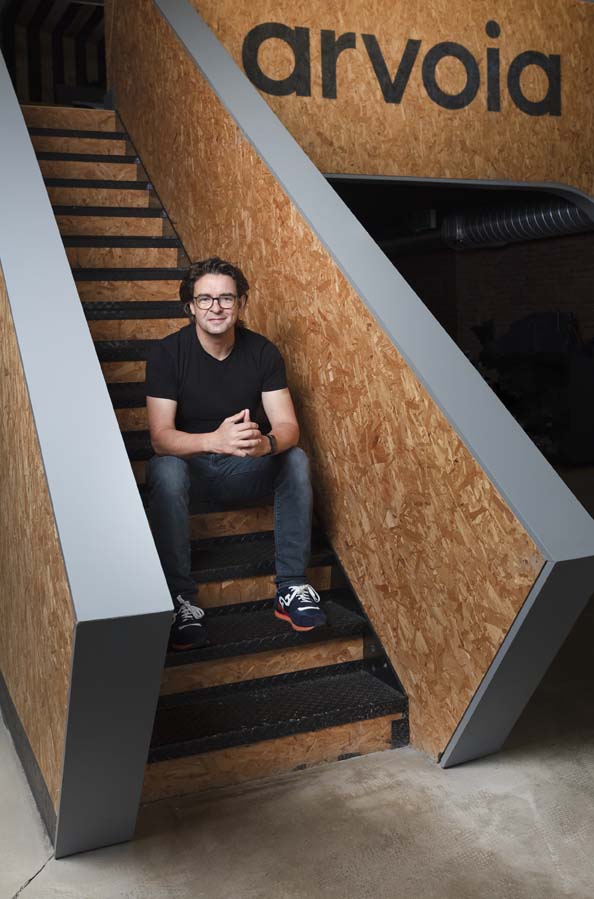Mike Webster is CEO and founder of Arvoia
Predictive AI is now affordable, for the hospitality industry it will help them win back direct bookings by personalising the experience.
Third-party distribution partners and resellers account to a huge cost for businesses, and this is very evident within the hotel industry, where third party bookings from Online Travel Agents (OTAs), like booking.com and Expedia, take huge shares of reservations. The rise of OTAs in the 2000s signalled a big decline in direct hotel bookings. But the rise of predictive Artificial Intelligence (AI) provides an opportunity to secure more direct bookings and stop revenue leaking to the third parties. AI enables hotels to offer unique digital experiences to their guests who expect nothing less in the age of Netflix and Amazon.
The potential for hotels to engage directly with a higher proportion of visitors has been there for a while. Google shows around 52% of guests who book with OTAs also check a hotel’s own website. But the bad news is the poor user experience usually sends them scurrying back to the OTAs. As a result, hotels in the US forked out US$28 billion in OTA commission fees in 2019.

AI provides the best solution to winning back direct business. It helps businesses communicate with every online visitor in real time. And it tailors their experiences when they access the website.
AI has been deployed for years to facilitate voice assistants, and build decision trees to support chatbots and robot waiters. These AI technologies use Natural Language Processing (NLP) and they’re the sexy, well-publicised part of AI. But predictive AI can be used in an even smarter way to support conversion rates. It’s more about connecting with consumers meaningfully and helpfully than dazzling them with technology.
Businesses can benefit from the same AI recognition technology that is used by Spotify and Netflix to automatically take into account personal tastes and priorities when making suggestions. Until relatively recently, this type of AI was only accessible to digital-first cash-rich platforms – but it has become far more affordable for SMEs.
This means hotels can now use predictive AI to compete with the elevated experience provided by online booking engines.
The modern consumer has become used to algorithms helping them make choices, and 71% of customers today expect a curated retail experience. Predictive AI instantly recognises individual preferences and intentions. It then responds with personalised content. Hotels can forget all about pre-packaged formulas. AI is self-learning so it’s able to analyse human behaviour and draw valuable lessons for the future of the business.
It might sound complicated if you don’t understand AI like most of us. But it’s surprisingly easy to integrate into existing platforms. Often it takes just a single line of computer code. This reduces the need for hotels to build complex proprietary solutions. Existing platforms are able to run thousands of AI models at once, all self-learning in real time.
AI can help hotels take advantage of a change in mindset that began during the pandemic. More and more guests became less satisfied with their experience of OTAs. Across European hotels, direct bookings rose to 59.7% from 54.4%. Conversely, the share of the market for OTAs fell to 28.7% from 29.4%.
But hotels need to embrace the AI technology that will give their digital guests a more fulfilling experience, or they run the risk that OTAs will claw back the lost market share.
The first step for hotel owners is to recognise that we’re living in a new era of travel booking, which is dominated by e-commerce technologies. Buying and consumption have been disrupted by digital-first tech companies, propelling the internet to Web 3.0. From simple search and book, Web 2.0 introduced OTAs, metasearch and smartphone apps. But the new generation is shaped by on-demand, direct and convenient digital retail.
When reviewing technology providers, it’s important to prioritise the human element. Does the tech stack help you connect with digital customers? Can your teams work smarter? Using AI technology that focuses on real-time behaviour allows your ecommerce and revenue teams to create products that resonate with customer experiences.
Improving the online experience will drive revenue growth by increasing conversion rates and booking value. Hotels using AI in their booking engine experience have seen up to 10% increases in monthly revenue and 30 times the return on investment (ROI) within the first six months.
And for hoteliers, AI’s potential goes far beyond optimising conversion rates. It increases the average lead time, reduces the time from search to book, and encourages repeat bookings. And it delivers deeper insights into visitor behaviour and booking patterns. Over time, its models learn to adapt to each individual visitor’s requirements.
The insights from AI also impact marketing. They help hotels improve loyalty recognition, upsell and tailor offers to guests. Much of this happens automatically, rather than through laborious, time-consuming research from marketing departments. AI will free up staff to focus on deeper strategic planning and initiatives and provide face-to-face guest experiences.
Hospitality marketing techstacks have tended to make life complicated for both hotels and guests. Singular solutions like pop-ups and banners have fragmented the retail journey. Using AI simplifies the approach. There is no longer a need for manual segmentation, separate offers for each audience type, nor interventions throughout the web experience. AI frees managers to think strategically about long-term brand engagement rather than focusing on short-term tactics.
Hotels are in a good position to use AI to provide fully curated experiences with on-demand, customised hospitality products. They can use AI to claw back the business that the OTAs cannibalised.
Ease of use is crucial. consumers expect to receive the most relevant services and products without spending ages navigating complex, individual websites. If hotels use AI to offer the personalised shopping experiences their guests have become used to, they’ll win back a much higher share of direct business and have happier, more loyal, customers.


